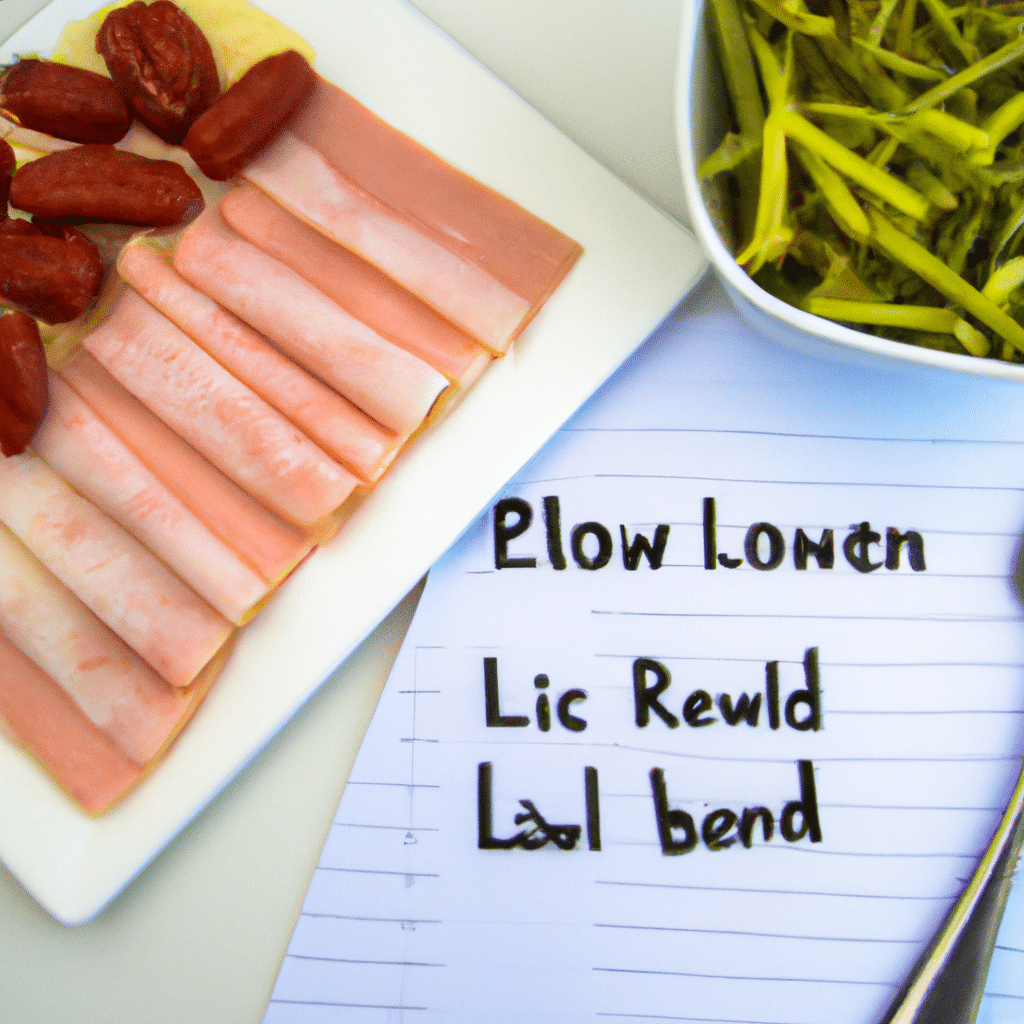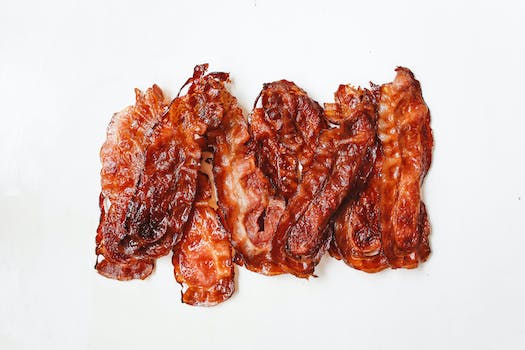
A Low Carb Meal Plan and Menu can be incredibly beneficial for improving your health. By reducing your carbohydrate intake, you can effectively manage your weight, control blood sugar levels, and enhance overall well-being. This article will provide you with a comprehensive guide on how to structure a low carb meal plan and menu that not only promotes good health but also offers delicious and satisfying options. Get ready to embark on a journey towards a healthier lifestyle!
- 1. Introduction
- 1.1. What is a low carb meal plan?
- 1.2. Why is a low carb meal plan important for health?
- 1.3. Benefits of following a low carb meal plan
- 2. Building a Low Carb Meal Plan
- 2.1. Understanding carbohydrates
- 2.2. Determining your daily carb intake
- 2.3. Choosing the right sources of carbs
- 2.4. Incorporating protein and healthy fats
- 2.5. Meal planning tips for success
- 3. Sample Low Carb Menu
- 3.1. Breakfast options
- 3.2. Lunch and dinner ideas
- 3.3. Snack suggestions
- 3.4. Beverage choices
- 3.5. Creating a balanced low carb meal
1. Introduction
A Low Carb Meal Plan and Menu to Improve Your Health
1.1. What is a low carb meal plan?
A low carb meal plan refers to a dietary approach that focuses on reducing the consumption of carbohydrates, particularly those found in grains, starchy vegetables, and sugary foods. This type of meal plan emphasizes the intake of protein, healthy fats, and non-starchy vegetables. By limiting the amount of carbs consumed, the body is encouraged to use stored fat as a source of energy, resulting in weight loss and improved health markers.
A low carb meal plan typically includes foods such as lean meats, fish, eggs, nuts, seeds, healthy oils, and plenty of leafy greens. It avoids or limits foods like bread, pasta, rice, potatoes, and sweets. The exact macronutrient ratio can vary depending on individual needs and preferences, but generally, a low carb meal plan consists of around 20-50 grams of net carbs per day.
Many people adopt a low carb meal plan to achieve various health goals. Research has shown that this type of eating pattern can help with weight loss, control blood sugar levels, and improve conditions such as metabolic syndrome, type 2 diabetes, and cardiovascular disease. Additionally, a low carb meal plan can lead to increased feelings of satiety, reduced cravings, and stable energy levels throughout the day.
In conclusion, a low carb meal plan is a dietary approach that promotes the consumption of protein, healthy fats, and non-starchy vegetables while limiting the intake of carbohydrates. By following a low carb meal plan, individuals can experience weight loss and various health benefits. It is important to consult with a healthcare professional or registered dietitian before making any significant changes to your diet.
1.2. Why is a low carb meal plan important for health?
A low carb meal plan is crucial for maintaining good health and well-being. In recent years, the popularity of low carb diets has skyrocketed due to their numerous health benefits. These meal plans focus on reducing the consumption of carbohydrates, such as refined sugars and grains, and instead emphasize the intake of protein, healthy fats, and nutrient-rich vegetables. By following a low carb meal plan, individuals can experience weight loss, improved blood sugar control, reduced risk of chronic diseases, and increased energy levels. This article will delve into the importance of a low carb meal plan for overall health and provide guidance on creating a menu that promotes a healthier lifestyle.
1.3. Benefits of following a low carb meal plan
A low carb meal plan can offer numerous benefits for improving your health. By reducing your intake of carbohydrates, especially refined sugars and processed grains, you can experience positive changes in your weight, blood sugar levels, and overall well-being. This type of meal plan focuses on consuming foods that are rich in protein, healthy fats, and fiber, while limiting the consumption of high-carb foods such as bread, pasta, and sugary treats. Following a low carb meal plan can lead to increased weight loss, improved insulin sensitivity, reduced risk of chronic diseases like diabetes and heart disease, and enhanced mental clarity and energy levels. In addition, this eating approach can help stabilize blood sugar levels, control hunger and cravings, and promote a feeling of fullness, which can support weight management and prevent overeating. Overall, a low carb meal plan can provide numerous health benefits and may be worth considering for individuals looking to improve their overall well-being and achieve their health goals.
2. Building a Low Carb Meal Plan
A low carb meal plan can be a great way to improve your health and achieve your weight loss goals. By reducing your intake of carbohydrates, you can help stabilize your blood sugar levels, increase your energy levels, and promote fat burning. However, building a low carb meal plan requires careful planning and consideration. Here are some steps to help you create a nutritious and delicious low carb menu:
1. Start with a protein source: Include lean meats, poultry, fish, or plant-based proteins like tofu or tempeh in every meal. These protein sources will help you feel full and satisfied.
2. Fill up on non-starchy vegetables: Load your plate with a variety of colorful vegetables such as leafy greens, broccoli, cauliflower, zucchini, peppers, and mushrooms. These vegetables are low in carbs and high in fiber, vitamins, and minerals.
3. Choose healthy fats: Include sources of healthy fats like avocados, nuts, seeds, and olive oil in your meals. These fats are essential for brain health and help keep you feeling satiated.
4. Limit high carb foods: Minimize or avoid foods that are high in carbohydrates such as bread, pasta, rice, potatoes, and sugary snacks. Instead, opt for low carb alternatives like cauliflower rice, zucchini noodles, or almond flour bread.
5. Don’t forget about hydration: Drink plenty of water throughout the day to stay hydrated and support your overall health.
Remember, it’s important to listen to your body and make adjustments to your meal plan as needed. Consulting with a healthcare professional or registered dietitian can also provide personalized guidance and support on your low carb journey.
2.1. Understanding carbohydrates
Understanding carbohydrates:
Carbohydrates are one of the three macronutrients that provide energy to our bodies. They are found in a variety of foods such as grains, fruits, vegetables, and dairy products. Carbohydrates can be classified into two main types: simple carbohydrates and complex carbohydrates.
Simple carbohydrates, also known as sugars, are composed of one or two sugar molecules. They are quickly digested and absorbed by the body, leading to a rapid increase in blood sugar levels. Foods high in simple carbohydrates include table sugar, candy, soda, and pastries. Consuming excessive amounts of simple carbohydrates can contribute to weight gain and increase the risk of developing chronic conditions like diabetes and heart disease.
On the other hand, complex carbohydrates are made up of long chains of sugar molecules. They take longer to digest, providing a more sustained release of energy. Foods rich in complex carbohydrates include whole grains, legumes, vegetables, and some fruits. These foods are also excellent sources of fiber, vitamins, and minerals.
When building a low carb meal plan, it’s important to understand the role of carbohydrates in our diet. While carbohydrates are an essential nutrient, reducing their intake can have various health benefits. By limiting the amount of simple carbohydrates and focusing on consuming complex carbohydrates in moderation, you can achieve a balanced and nutritious low carb meal plan.
2.2. Determining your daily carb intake
Determining your daily carb intake is an important step in building a low carb meal plan. The amount of carbs you should consume each day depends on several factors, including your weight, activity level, and health goals. For most people, a daily carb intake of 20-50 grams is considered low carb. However, some individuals may need to consume even fewer carbs to achieve their desired results.
To determine your specific daily carb intake, it is recommended to consult with a healthcare professional or a registered dietitian. They can assess your individual needs and provide personalized recommendations. In general, they will consider factors such as your current health status, any underlying medical conditions, and your overall dietary preferences.
Once you have determined your daily carb intake, you can start building a low carb meal plan. This involves choosing foods that are low in carbs but high in nutrients. Focus on incorporating plenty of non-starchy vegetables, lean proteins, and healthy fats into your meals. Avoid or limit foods that are high in refined carbohydrates, such as sugary snacks, white bread, and pasta.
Creating a balanced low carb meal plan can help improve your health in various ways. It can aid in weight loss, help stabilize blood sugar levels, and reduce the risk of chronic diseases such as diabetes and heart disease. Remember to listen to your body and make adjustments to your meal plan as needed. It may take some trial and error to find the right balance of carbs that works best for you and your health goals.
2.3. Choosing the right sources of carbs
When building a low carb meal plan, one of the most important aspects to consider is choosing the right sources of carbs. While it is essential to reduce overall carb intake, not all carbs are created equal. It is crucial to focus on consuming complex carbohydrates that are rich in fiber and nutrients, rather than simple carbohydrates that are quickly digested and can cause a spike in blood sugar levels.
Some excellent sources of complex carbs include whole grains like quinoa, brown rice, and oats. These grains are not only packed with fiber but also provide essential vitamins and minerals that are beneficial for overall health.
In addition to whole grains, vegetables such as broccoli, spinach, and kale are excellent choices for low carb meal plans. They are low in carbs and high in fiber, making them ideal for maintaining stable blood sugar levels.
Furthermore, legumes like lentils and chickpeas are great sources of complex carbs. They are also high in protein, making them a perfect addition to a low carb meal plan.
Lastly, it is important to limit or avoid simple carbs such as refined sugars, white bread, and sugary beverages. These foods can lead to weight gain and negatively impact overall health.
By choosing the right sources of carbs for your low carb meal plan, you can improve your health, maintain stable blood sugar levels, and promote weight loss.
2.4. Incorporating protein and healthy fats
Incorporating protein and healthy fats is essential when building a low carb meal plan. Protein is important for muscle growth and repair, as well as keeping you feeling full and satisfied. Good sources of protein for a low carb diet include lean meats like chicken, turkey, and fish, as well as eggs and dairy products like Greek yogurt and cottage cheese.
Healthy fats are also crucial for a well-balanced low carb meal plan. They provide energy, help absorb fat-soluble vitamins, and support brain function. Some healthy fat options include avocados, nuts and seeds, olive oil, and fatty fish like salmon and mackerel.
By incorporating protein and healthy fats into your low carb meal plan, you ensure that you’re getting the necessary nutrients while keeping your carbohydrate intake in check. This combination will help improve your overall health and support your weight loss goals.
2.5. Meal planning tips for success
Meal planning is an essential component of any successful low carb diet. By preparing your meals in advance, you can ensure that you are making healthy food choices and staying on track with your health goals. Here are some tips to help you plan your meals effectively for a low carb lifestyle:
1. Start by making a list of low carb foods: Before you begin meal planning, make a list of low carb foods that you enjoy. This can include protein sources like chicken, fish, and tofu, as well as low carb vegetables like broccoli, spinach, and cauliflower.
2. Calculate your macros: Determine your daily macronutrient needs, including the appropriate amount of carbohydrates, protein, and fat for your low carb diet. This will help you create balanced meals that meet your nutritional requirements.
3. Choose a variety of recipes: Look for low carb recipes that are both delicious and nutritious. Experiment with different flavors, cooking techniques, and ingredients to keep your meals interesting and satisfying.
4. Prep and cook in batches: Spend some time each week prepping and cooking your meals in batches. This will save you time and effort during the week and make it easier to stick to your low carb meal plan.
5. Portion your meals: Divide your meals into appropriate portion sizes to help control your calorie intake. This will also make it easier to grab a pre-portioned meal when you’re on the go.
6. Incorporate snacks: Don’t forget to plan for snacks in your low carb meal plan. Choose low carb options like nuts, seeds, and cheese to keep you satisfied between meals.
7. Stay hydrated: Remember to drink plenty of water throughout the day. Staying hydrated is important for overall health and can help you feel full and satisfied.
By following these meal planning tips, you can create a successful low carb meal plan that supports your health and wellness goals.
3.1. Breakfast options
When following a low carb meal plan, it’s important to start your day with a nutritious and satisfying breakfast. This will help kickstart your metabolism and keep you feeling full and energized throughout the morning. Here are some delicious low carb breakfast options to include in your meal plan:
1. Scrambled Eggs with Vegetables: Whip up a quick and easy breakfast by sautéing your favorite vegetables, such as bell peppers, mushrooms, and spinach, and then scrambling in some eggs. This protein-packed dish is not only low in carbs but also packed with vitamins and minerals.
2. Greek Yogurt with Berries: Opt for plain Greek yogurt, which is lower in carbs compared to flavored varieties. Add a handful of fresh berries, such as strawberries or blueberries, for a burst of antioxidants and natural sweetness.
3. Avocado and Bacon Omelette: Combine the creaminess of avocado with the savory goodness of bacon in a fluffy omelette. Avocado is a great source of healthy fats, while bacon adds a delicious crunch and flavor.
4. Chia Seed Pudding: Mix chia seeds with unsweetened almond milk or coconut milk and let it sit overnight to form a pudding-like consistency. Top it with some nuts or berries for added texture and flavor.
5. Smoked Salmon Roll-ups: Take a slice of smoked salmon and spread some cream cheese on it. Roll it up and enjoy this protein-rich and low carb breakfast option.
Remember, a low carb breakfast doesn’t have to be boring. Get creative with your ingredients and enjoy a variety of flavors to keep your taste buds happy while still sticking to your health goals.
3.2. Lunch and dinner ideas
For those following a low carb diet, coming up with lunch and dinner ideas can be challenging. However, with a little creativity and planning, you can enjoy delicious and satisfying meals while still maintaining your low carb lifestyle. Here are some ideas for a sample low carb menu:
Lunch:
– Grilled chicken Caesar salad: Toss grilled chicken breast with fresh romaine lettuce, Parmesan cheese, and a low carb Caesar dressing.
– Zucchini noodles with marinara sauce: Use a spiralizer to make zucchini noodles and top them with a homemade marinara sauce. Add some grilled shrimp or chicken for extra protein.
– Avocado and bacon lettuce wraps: Fill large lettuce leaves with mashed avocado, crispy bacon, and sliced tomatoes. Roll them up for a tasty and low carb lunch.
Dinner:
– Baked salmon with roasted asparagus: Season salmon fillets with lemon juice, garlic, and herbs, and bake them in the oven. Serve with roasted asparagus for a healthy and satisfying dinner.
– Cauliflower fried rice: Pulse cauliflower florets in a food processor until they resemble rice. Sauté the cauliflower rice with vegetables, such as carrots, peas, and onions, and add some cooked chicken or shrimp.
– Steak and vegetable stir-fry: Sear thinly sliced steak in a hot skillet and stir-fry with a mix of colorful vegetables, such as bell peppers, broccoli, and snap peas. Season with soy sauce and garlic for a flavorful low carb dinner.
Remember to always choose high-quality ingredients and focus on incorporating plenty of non-starchy vegetables into your meals. With these lunch and dinner ideas, you can enjoy a variety of delicious low carb options while improving your health.
3.3. Snack suggestions
If you’re looking to improve your health and follow a low carb diet, it’s important to have a variety of snack options that are both delicious and satisfying. Here are some snack suggestions that are low in carbs but high in flavor:
1. Nuts and Seeds: Almonds, walnuts, sunflower seeds, and pumpkin seeds are all great choices for a low carb snack. They are packed with healthy fats and provide a good amount of protein to keep you feeling full.
2. Cheese and Deli Meats: Cheese sticks, slices of cheese, and deli meats like turkey or ham are convenient and satisfying low carb snacks. They are high in protein and can be easily enjoyed on their own or paired with some vegetables.
3. Hard-Boiled Eggs: Eggs are a fantastic low carb snack option as they are rich in protein and nutrients. Hard-boiled eggs are portable and can be prepared in advance for a quick and easy snack on the go.
4. Greek Yogurt: Opt for plain, unsweetened Greek yogurt as it is low in carbs and high in protein. Add some berries or a sprinkle of nuts for extra flavor and crunch.
5. Vegetable Sticks with Dip: Snack on crunchy vegetables like celery, cucumber, and bell pepper with a delicious low carb dip such as guacamole or hummus. This combination provides a great balance of fiber, vitamins, and healthy fats.
Remember, when following a low carb meal plan, it’s important to choose snacks that are nutrient-dense and provide sustained energy throughout the day. These snack suggestions can help you stay on track with your low carb diet while still enjoying delicious and satisfying options.
3.4. Beverage choices
When following a low carb diet, it is important to make mindful choices when it comes to selecting beverages. Many popular beverage options are loaded with sugar and carbohydrates, which can derail your efforts to maintain a low carb lifestyle. Instead, opt for these low carb beverage choices to complement your low carb meal plan:
1. Water: The ultimate zero-carb drink, water should be your go-to beverage choice. It is essential for hydration and has no calories or carbs.
2. Unsweetened Tea: Whether it’s black tea, green tea, or herbal tea, choosing unsweetened varieties can add flavor and antioxidants to your diet without adding any carbs.
3. Coffee: Enjoy your coffee black or with a splash of unsweetened almond milk or heavy cream. Avoid adding sugar or flavored syrups that can significantly increase carb content.
4. Sparkling Water: If you crave carbonation, sparkling water is a great option. Look for brands that are flavored naturally and have no added sugars.
5. Almond Milk: Unsweetened almond milk is a low carb alternative to regular milk. It can be used in smoothies, coffee, or enjoyed on its own.
6. Herbal Infusions: Experiment with herbal infusions like mint or chamomile tea. These flavorful and caffeine-free options can provide a refreshing beverage choice.
Remember, it’s important to read labels and be mindful of hidden sugars or artificial sweeteners in certain beverages. Stick to these low carb options to stay on track with your healthy eating goals.
3.5. Creating a balanced low carb meal
Creating a balanced low carb meal is essential for maintaining a healthy diet and improving your overall health. By focusing on incorporating the right combination of low carb foods, you can ensure that your body receives the necessary nutrients while still keeping your carbohydrate intake in check.
To start, it’s important to include a good source of protein in your low carb meal. This can be in the form of lean meats like chicken, turkey, or fish. Protein helps to keep you feeling full and satisfied, while also aiding in muscle growth and repair.
Next, you’ll want to add a variety of non-starchy vegetables to your meal. These include leafy greens like spinach, kale, and lettuce, as well as other vegetables like broccoli, cauliflower, and peppers. These vegetables are low in carbs but rich in vitamins, minerals, and fiber.
To round out your low carb meal, include a small portion of healthy fats. This can be in the form of avocado, olive oil, nuts, or seeds. Fats are important for satiety and provide essential fatty acids that support brain function and overall health.
Remember to portion your low carb meal appropriately, keeping in mind your individual calorie and macronutrient needs. It’s also beneficial to spread out your meals throughout the day, aiming for three balanced meals and one or two small snacks.
By creating a balanced low carb meal, you can enjoy a wide variety of delicious and nutritious foods while still maintaining a low carb lifestyle.
Conclusion
Incorporating a low carb meal plan and menu can greatly improve your overall health. By reducing the intake of carbohydrates, you can effectively manage your weight, control blood sugar levels, and lower the risk of chronic diseases. It also promotes a balanced and nutritious diet that includes lean proteins, healthy fats, and plenty of vegetables. Making this dietary change can lead to increased energy levels, improved digestion, and better overall well-being. Start incorporating a low carb meal plan today to reap the numerous health benefits it offers.


